Korsmo’s Weekly Roundup: The Home Stretch

Friends,
You know that I’m a fan of football and a huge fan of Seahawks coach Pete Carroll. His post-game victory speech almost always begins thus: “Do we win the game in the first quarter? (NO!) Do we win it in the second quarter? Do we win the game in the third quarter? No. We win the game in the fourth quarter.” Well folks, as it relates to the legislative session, we are firmly in the throes of the fourth quarter and fast approaching the two-minute warning.
With less than a week to go, much remains to be done. That list includes a fix for our charter schools, wildfires, a supplemental budget and myriad education issues. The one thing that has made it past the finish line is the McCleary task force bill that the Governor signed on Monday – the hope being that the task force satisfies the Supreme Court’s ruling requiring a plan for full funding. You can get more detail about the role of the task force here. All bill movement and descriptions can be found here.
Speaking of the budget, both budgets have passed their respective chambers (HB 2376 & SB 6246). Significant differences remain regarding the use of the Rainy Day Fund – the House is transferring $318 million from the Rainy Day Fund and the Senate is transferring $0. Required spending is eating up most of the additional revenue, leaving few resources to enhance or expand programs, which further complicates matters. The estimated additional required spending is expected to be approximately $360 million:
- $235 million – Forest fires and related recovery efforts
- $124 million – Court mandated healthcare spending and higher than expected healthcare costs
Session is set to expire at midnight Thursday and everyone wants to get out to start the campaign season. A special session isn’t out of the realm of possibility, but doesn’t fall into the realm of the desirable. What is desirable is final action on a handful of bills that made it out of the opposite chamber this week, including:
- HB 1345 – Defining professional learning for educators
- HB 1999 – Improving educational outcomes for foster youth
- SB 6466 – Concerning student services for students with disabilities in higher education.
Here are bills that passed out of opposite chamber, but still have some differences to be worked out before getting to the Governor’s desk:
- SB 6601 – Washington College Savings Program
- HB 1682 – Increasing educational outcomes for homeless students
We are still in the thick of it on charter schools. Kids and parents have burned up the concrete turning out in Olympia and most mainstream media are in support of a fix. All attention is turned now to the House where the next action must be taken.
It’s looking less likely that we’ll get the funding fix we need for Career and Technical Education (CTE), unless a rabbit and a hat are part of the final budget negotiations. Which is a shame, because our kids need improved access to CTE – it is the bridge to the world after high school for many.
In other news:
- The higher education bottleneck is one more indicator of disparity.
- I’m going to eschew the standard adjectives that often attach themselves to the current front runners for the White House. And instead, give you their education platforms, ideology, and just musings.
- Ok, Rubio, Cruz, and Sanders, too.
- It’s not too late to celebrate Seuss’ birthday.
Ok folks, that’s it for the week. But don’t turn away – next week will be past us in a heartbeat and there’s a LOT left to do. Enjoy your weekend, hug your children, and thanks for all you do for Washington’s kids.
Chris and Team LEV

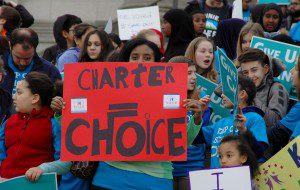
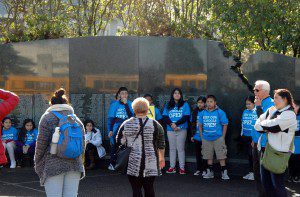

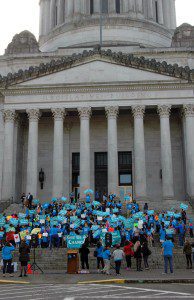
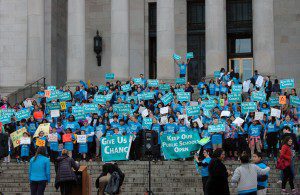

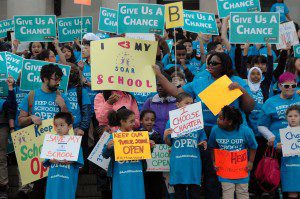
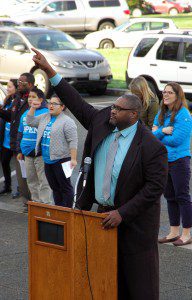
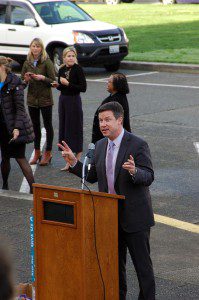
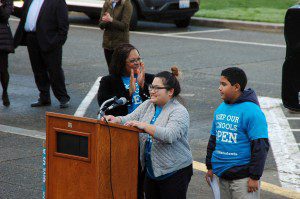
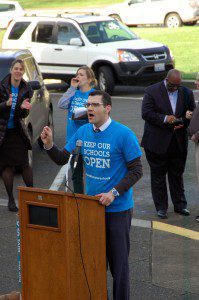
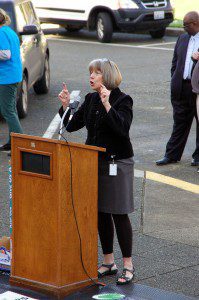
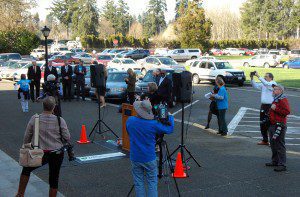
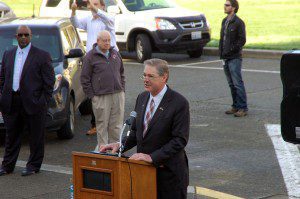
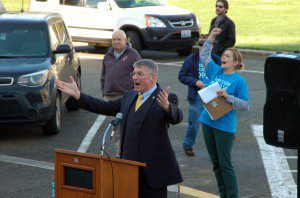
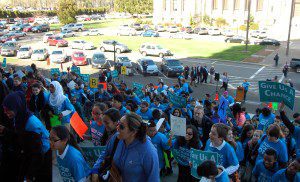
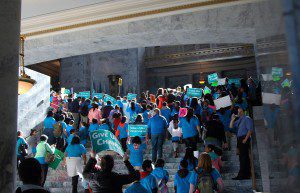
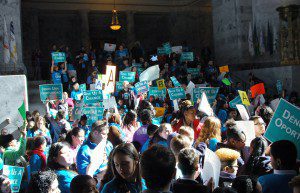
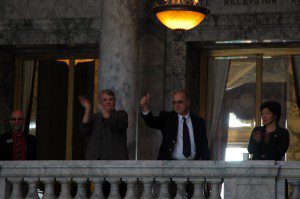

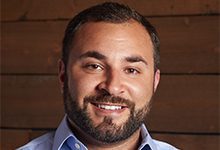 At the League of Education Voters (LEV), we recognize all of the hard work that you do toward improving public education across Washington state. We are pleased to announce our Activist of the Month for November: Adel Sefrioui. Read more about Adel’s work developing Excel Public Charter School, which will open in Kent in 2015.
At the League of Education Voters (LEV), we recognize all of the hard work that you do toward improving public education across Washington state. We are pleased to announce our Activist of the Month for November: Adel Sefrioui. Read more about Adel’s work developing Excel Public Charter School, which will open in Kent in 2015. At the League of Education Voters (LEV), we recognize all of the hard work that you do toward improving public education across Washington state. We are pleased to announce our Activists of the Month for October: Quontica and Marlando Sparks. Read more about their experience advocating for parent engagement and their plans to open a public charter school for at-risk youth in Pasco.
At the League of Education Voters (LEV), we recognize all of the hard work that you do toward improving public education across Washington state. We are pleased to announce our Activists of the Month for October: Quontica and Marlando Sparks. Read more about their experience advocating for parent engagement and their plans to open a public charter school for at-risk youth in Pasco.